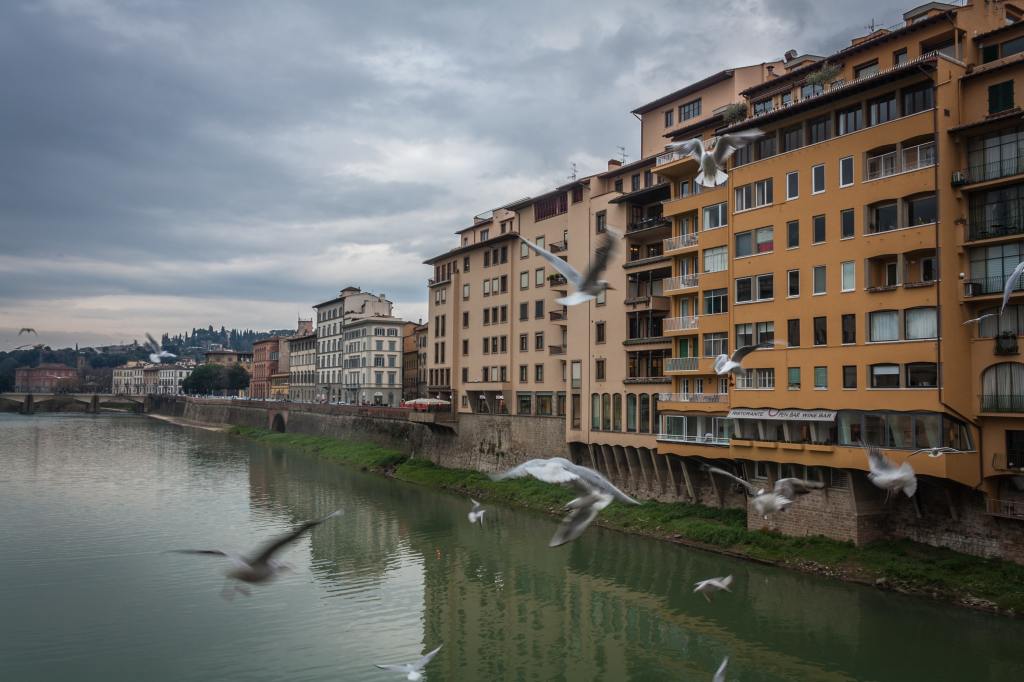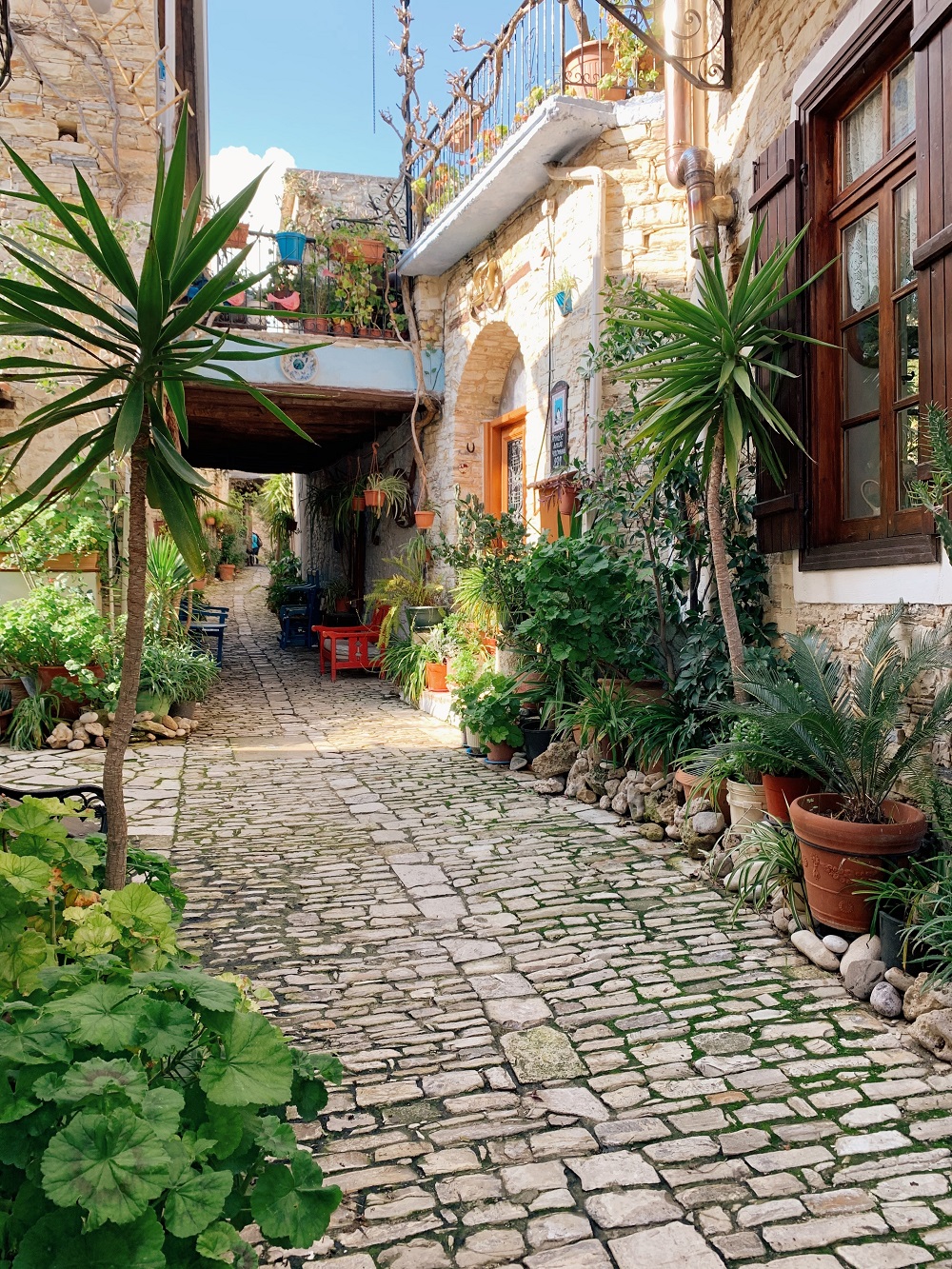
Everyone in our house slept fine last night, except Jason, who claimed he got “half an hour” of sleep,” and his wife, who occupies the other half of the bed. Up and down, checking polls, ballot counts, Electoral College tallies. On the plus side, it wasn’t the route of 2016, when he roused me at 6 AM to tell me that He Who Shall Not Be Named had cakewalked off with the highest elected office in the land.
I sniffled and cried that week, on the circuit among home, the kids’ school, my office, home again. Watching the leaves turn on Via della Colonna, the blue sky sparkle, dreams crumble.
This year is different. No rousing, not news of a rout. But plenty of nail biting. The day was dark. I didn’t feel like smiling, which is unusual. I felt sick. My low expectations were being confirmed, and I didn’t like it. How? How can this be happening? People asked me. Hm, live 30 years in Oklahoma, and you might understand why. Once again I felt myself falling into the familiar role of cultural explainer. When cultures collided historically on the Italian peninsula, the Italian process of incivilimento (civilizing) was initiated by figures—temosfori—who acted as the cultural mediators between different human groups.
Florence was empty, rainy, wet. Disintegrating dog poo all over the sidewalks, of course. The ongoing pandemic underscores just how much the Florentine economy depends on mass tourism and global mobility. I’d read that 70% of the residences in the centro are tourist rentals, and these days, I believe it. The city is about 30% full. One in six jobs in Florence is gone for good. Stores permanently shuttering. I grumbled to myself as I locked up my bike and prepared to go into the very quiet office on the very quiet street. A new 28-page decree of restrictions, all aimed at preventing the spread of Covid, was released yesterday. There is no hustle and bustle in Florence these days. The baristas are bored.
Our of the corner of my eye I saw a woman falter on the sidewalk. She was too well dressed to be homeless or drunk, a bit older than I. “Signora,” she said softly, “can I walk with you?” I saw she was blind, or partially blind, and not walking well. I said of course.
“Where to?”
“Those plants.” The plants were about twenty feet away. She was very unsteady.
“Signora, would you like to take my elbow?”
“Yes, please, that’s so nice of you.” Her gnarled right hand clapped my left elbow. “Where are you from? Your Italian is very good. So clear.”
I guffawed. I never believe the compliment. “I’m American.”
“Oh, ugly day! These elections.”
“I know,” I said. I asked her where she was from. She said the Casentino, the mountainous part of Tuscany to the east which we know fairly well from numerous day trips and time spent out at Simone’s spread in Castelfranco di Sopra. I told her we loved her region, that we’d spent a delightful two weekends in Stia in the past year.
“Stia!” she crowed. “That’s my hometown.” I mentioned our friend Martha, who lives just outside of Stia in Porciano in a renovated tenth-century tower. The signora was amazed and delighted that we had a mutual acquaintance, and such a distinguished on.
We continued walking. “Where are you walking to?” she asked me.
“Oh, Piazza del Duomo,” I said. “Where do you need to go?”
“The Uffizi,” she replied. “I work there.” She may have said she worked in the archives or as an art historian. I was focused on the uneven sidewalk and my increasingly tingly left arm. My mind whirled. That was a true jaunt! I saw how tentatively she stepped on the sidewalk, faltering on the uneven pavers. “Signora, do you normally make this walk to work?”
“Every day,” she said, “but today is really bad.”
I could believe it. I patted her hand and walked slowly with the chatty Italian caboose latched onto me, walking down Via Cavour toward the river. We talked about my kids, the schools, language, her studies in Greek philosophy, my general fetish for Classics, the Roman empire, and all topics Romance of any era. We reached Piazza del Duomo and she stopped. “Well, you can leave me here,” she announced.
“Oh, no, Signora, if you need me to, I can walk to your office.”
“Oh no! I won’t let you!”
“I think I must!”
“That would be so helpful – thank you. I’m indebted. Also,” she added again, “because I can’t see, I use my ears more, and I love your clear voice. It’s very easy to understand! Oddio, I wish my English were as good as your Italian!” I blushed, but she couldn’t see that. She was walking very slowly, her feet in black flats, a mask on her face, extremely fogged thick glasses. I judged that she and I were about the same height. The signora and I continued down Via Calzaiuoli to Piazza della Signoria. By now we were talking about San Francesco and La Verna and Camaldoli monks and all the religious devotion to be found in the Casentino. Then the Conti Guidi and all their castles. No one gave us a second look. A younger person calmly and gently leading an older person in public is a frequent sight and a badge of honor in Italy.
We crossed the Piazza and turned left on Via Ninna. I led her to her office, and down the stairs (“Signora, forgive me – I am sure you know these gradini!” “Oh, your beautiful Italian!”) to the Uffizi security.
I continued on my walk with my headphones on, listening to a “Reply All” podcast about quantifying happiness. In that moment I felt very blessed that this opportunity had presented itself in the form of a small, blind Italian woman, unsteady on her feet, for whom I might do a small service in the name of civil society. On a day when my low expectations were being met abroad, it was a balm to be able to step into this circle of basic kindness.
So, if you are struggling today with everything in the world, that’s the best I have for you. If an opportunity presents itself for you to show basic kindness and civility, please take it, even if it brings you a half hour out of your way and slightly off course. It lifted me, a temosfora, borne up by kindness and acceptance, usefulness and assimilation.



